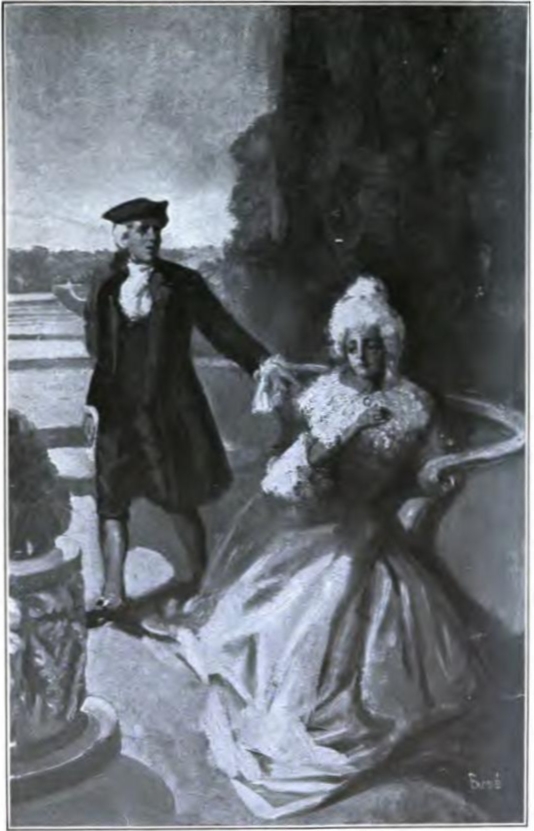E-text prepared by Andrea Ball & Marc D'Hooghe
(http://www.freeliterature.org)
from page images generously made available by the
Google Books Library Project
(http://books.google.com)
| Note: | Images of the original pages are available through the the Google Books Library Project. See http://www.google.com/books?id=fAMtAAAAMAAJ |
THE MYSTERY OF THE LOST DAUPHIN
(Louis XVII)
By
EMILIA PARDO BAZÁN
TRANSLATED FROM THE SPANISH
By
ANNABEL HORD SEEGER
FRONTISPIECE ILLUSTRATION
By
RAPHAEL BODÉ
FUNK & WAGNALLS COMPANY
NEW YORK and LONDON
1906
 "When the world salutes me King, I will admit I am yourbrother."
"When the world salutes me King, I will admit I am yourbrother."EMILIA PARDO BAZÁN
While Provençal literature blossomed in chivalric splendor along thenorthern shore of the Mediterranean and rare pastoral music in madrigalsand roundelays rang through France and Italy, there sounded from thesea-girt province of Galicia wonderful songs which rivalled the sweeteststrains of the troubadours, making kings to weep and warriors to smile,thrilling, by their wit and pathos and lyrical beauty, the brilliantcourts of Castile and Leon.
It is an ethnographical phenomenon that, in Great Britain, France andSpain, the Celt has been pushed to the northwest. Galicia corresponds inposition to Brittany and her people are characterized by the powerfulimagination, infinite delicacy, concentration of feeling and devotion tonature which are the salient attributes of Gaelic and Cymric genius.
The Modern Literary Renaissance of Galicia, a superb outburst ofGallegan exuberance, has a noble and eloquent exponent in Emilia PardoBazán, gifted child of this poetic soil.
Senora Pardo Bazán has been called the creator and protagonist ofSpanish Realism. It has been claimed that she bears to Spain such arelation as Turgénieff to Russia and Zola to France. She herself sayssomewhere that she is skeptical regarding the existence of Realistic,Idealistic and Romantic writers, averring, in her trenchant style, thatauthors constitute but two classes, good and poor. "Certain criticswould affirm," she remarks, "that, as simple as the cleaving in twain ofan orange is the operation of separating writers into Realistic andIdealistic camps."
One biographer claims that our author sacrifices sex to art and that theresult warrants the sacrifice. I would insist that 'tis a lady's handwielding the mailed gauntlet and that reading Pardo Bazán helps one tounderstand why Great Brahm is described as partaking of the feminineprinciple.
Castelar has remarked that: "In Belles Lettres we have the illustriousCelt, Emilia Pardo Bazán, whom, living, we count among the immortals,and whose works, though of yesterday, are already denominated Spanishclassics." Garcia, in his History of Spanish Literature, calls her theSpanish de Staël. Rollo Ogden writes: "No masculine pen promises morethan